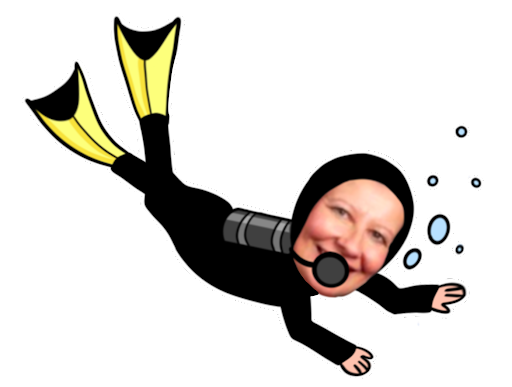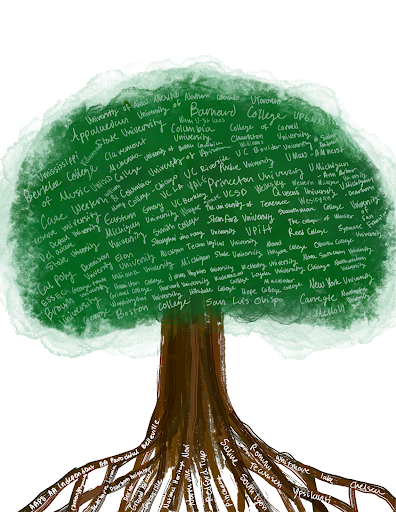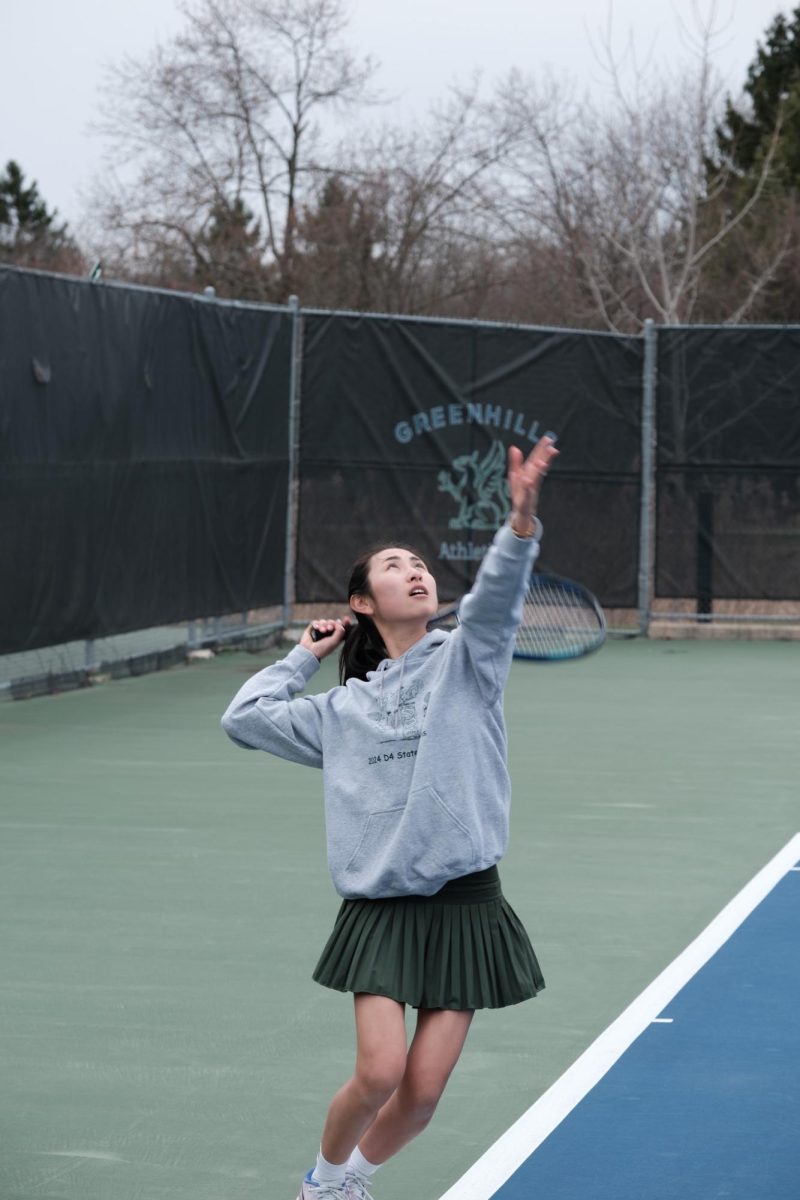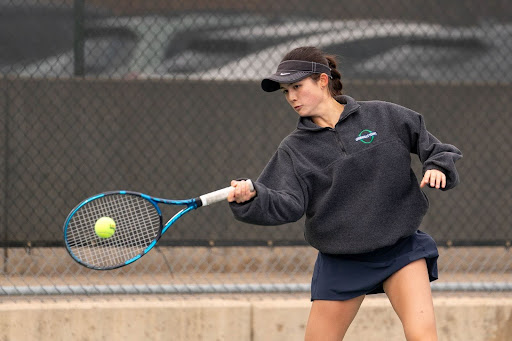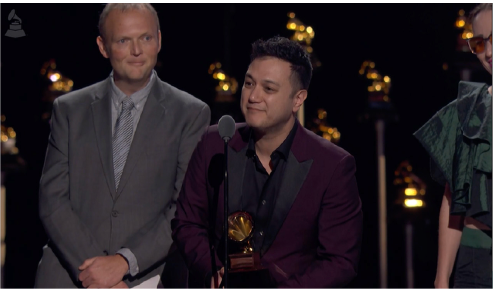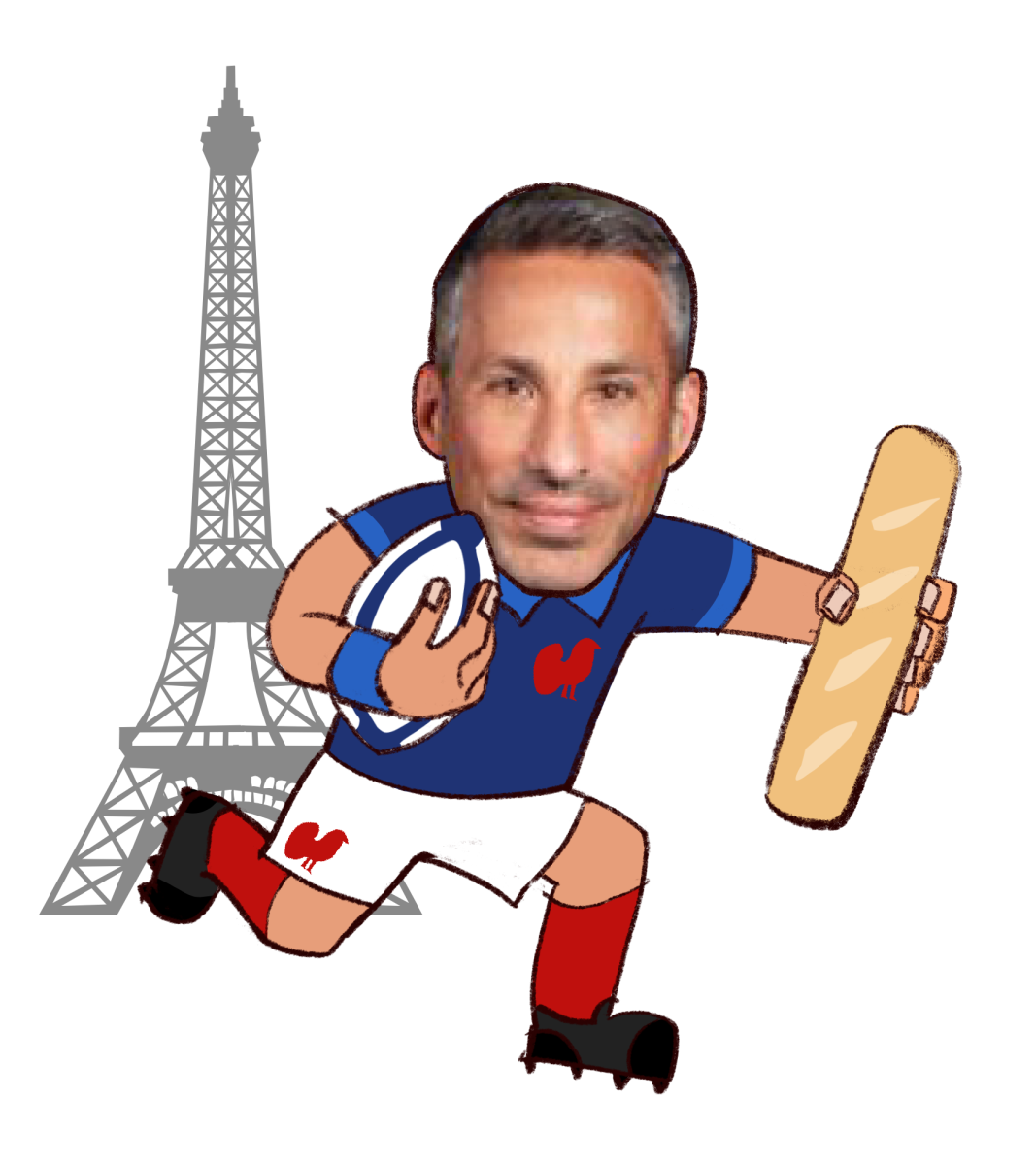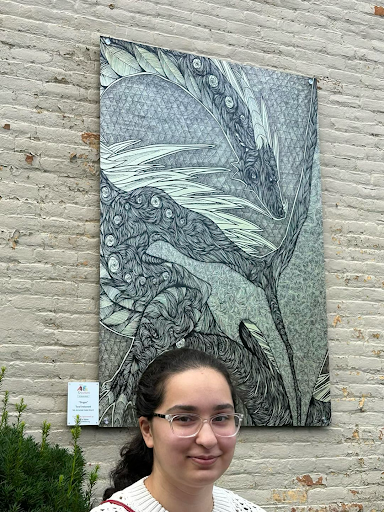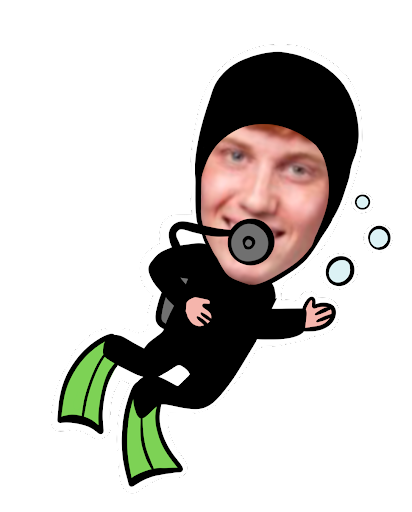Imagine the fresh feeling rushing through your body as you plunge into the cold water. Diving deep, you reach the point where most people have to turn back, but not you. You get to dive deeper, exploring the untouched and rare flora and fauna of the sea floor. Swimming around with the fish you are filled with an overwhelming feeling of awe.
Many people go their entire lives without experiencing the beauty of the ocean, but others turn to oxygen-producing masks and tanks. These tools are called SCUBA, which stands for self-contained underwater breathing apparatus. Calculus teacher Barbara Rocci has had a passion for SCUBA diving since she was a little girl.
“I have been SCUBA diving since I was 12,” said Rocci. “My dad was taking lessons and thought that I might enjoy it so he asked if I wanted to join. That was definitely one of the best decisions of my life.”
Rocci has visited many locations including the Caribbean islands, Galapagos, and most recently Indonesia.
“Just recently my family and I went to Sulawesi, Indonesia,” Rocci said. “That is probably the place I would go back to as often as I can to see all the critters.”
For Rocci, SCUBA diving is an integral part of her life and she tries to get out into the water as much as possible. She shares SCUBA diving with the people she loves most, her husband and her son.
“We try to go at least once a year,” Rocci said. “Most of the time we go to the Caribbean since it’s a lot closer, but when we get a chance we love to go to other destinations around the world.”
SCUBA diving as a sport is pretty niche. Many people only dive once or twice in their lives on a vacation.
“SCUBA diving has a pretty strong large group of people who dive,” Rocci said. “However there are a lot fewer people who seriously are passionate about it. Diving is definitely growing though because of how many people are starting to learn more about it as they travel to tropical destinations.”
Many people get buried in work and need an escape from their daily lives. Rocci uses SCUBA diving as a way to detach from her life here and immerse herself in a whole new world.
“My favorite thing about SCUBA diving is being so removed from my everyday world,” Rocci said. “Being able to experience so many places and animals that many people never get to see is so special.”
Animals are a very important part of diving for Rocci is all the different animals she sees.
“Indonesia had a bunch of crazy animals,” Rocci said. “We saw a blue ringed octopus, who is very toxic if they bite you. We were in the water with basking sharks and sperm whales at some point too, sharks are my personal favorites.”
Although SCUBA diving is growing commercially, it’s becoming harder to find opportunities because of climate change, increased tourism and destruction of reefs.
“There has been a lot of stress and destruction of reefs worldwide because of climate change,” Rocci said. “Even though we still go to the Caribbean, it’s a very different place than when I first started diving there. Around 40 years ago, it was an incredibly lush place filled with colorful coral and fish. Now there’s just a lot more dead coral and it’s pretty barren in comparison. The reefs can’t keep up with the pollution and there are too many tourists going and touching everything. It used to be so different.”
Rocci isn’t the only one experiencing the recent changes in the diving world. Lachlan Rae ‘24 agrees that the effects of global warming are prominent.
“The environment is definitely getting a lot worse and harder to find places to dive,” Rae said. “Even in the past five years I have noticed a difference in coral down there and life in general.”
Even with the new challenges the environment presents, Rae still tries to dive at least once a year. He picked up the sport recently about six years ago after his parents suggested he try it out.
“My favorite place I have been so far is definitely Peter Island in the British Virgin Islands,” said Rae. “When you’re down there you don’t really hear any noises, imagine a nice warm blanket around you and you’re just floating in the clouds. That’s what diving feels like to me.”
Being alone in the water, Rae and other divers encounter many different friendly creatures who most people never get to see.
“This one dive we had this nurse shark come with us,” said Rae. “He was like an underwater puppy and followed us. We even got to pet him.”
Although Rae loves the animals and sea life, his favorite part about diving is something that doesn’t have to do with going underwater.
“The people you meet are just amazing,” Rae said. “I have a dive master and I always meet new people who are as enthusiastic as me about diving.”
